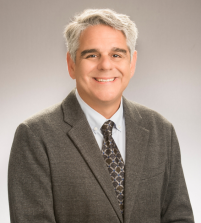When Tap Water Becomes Holy Water: The Strange Saga of the Pope's Water Glass
a strange incident involving the glass of water used by the Pope
By Héctor M. Varela RiosOctober 22, 2015
 During Pope Francis’ historic visit to the United States, several online news outlets, from CNN.com to gawker.com, reported a strange incident involving the glass of water used by the Pope while addressing Congress.
During Pope Francis’ historic visit to the United States, several online news outlets, from CNN.com to gawker.com, reported a strange incident involving the glass of water used by the Pope while addressing Congress.
According to the Washington Post’s Colby Itkowitz, for one, Rep. Bob Brady (D-Pa.) “snatched” the “half-full” glass from the podium, and took it to his office. There, he drank from it and shared it with his wife, staffers, Sen. Bob Casey (senior U.S. Senator from Pennsylvania), and Casey’s wife.
The news story included images of Brady and others sipping from the glass (photographs were distributed to news agencies by his office on the Hill). Headline descriptions of the event ran the gamut from “gross” to “holy.”
Several details are striking. Brady is a repeat offender: he took the glass used by President Obama during his first inaugural address. Also, Brady collected what was left of the Pope’s water after the impromptu ceremony in his office to “bless his grandchildren.”
When reminded by reporters that the water wasn’t holy in the strict Catholic sense, he chided them, saying he “couldn’t care less” what they thought. His reason? “Anything the Pope touches becomes blessed.”
The difference between Obama’s glass and the Pope’s glass? “One is political,” Brady said, “the other spiritual.”
Why does Brady consider a glass “blessed” because it has been touched by the Pope? In Catholic doctrine, blessing, a transformative journey from the material to the spiritual, is accomplished only through ritual. But the congressman opts for a more convenient, personal understanding. It is meaningful for him by himself.
In addition, Brady places the Pope’s glass on the same plane as Obama’s; even if qualitatively different (one is “spiritual,” the other “political”), both seem, to him, to be essentially equal. They are meaningfully displayed and used, as needed, to channel their power.
The Pope’s glass, this ‘thing,’ shows its energy to Brady through a mixture of stasis and exchange in communal and individual uses. It is meaningful at him.
Furthermore, the fact that Brady conspicuously shared the glass with family and colleagues facilitates a pathway of shared religious performativity for Brady; it is meaningful through him.
On the one hand, Brady deprivatizes his religiosity. He reveals a specific, personal definition of the liminal space between the political and the spiritual, and then willingly opens it for like-minded participants. His characterization of the “political” in one glass and the “spiritual” in another may betray a deeper consciousness of the “politically spiritual” or the “spiritually political” than he may be aware.
On the other hand, the congressman has reminded us about our special, sensorial relationship with ‘things.’ Many, if not all, religions heavily depend on sacralized instruments. Some have been historically better at valuing the body itself, the best index of human ‘thingness,’ as sacred. Undoubtedly, though, ‘things’ are polyvalent. They serve as repositories of hopes and dreams, but also, as co-created, they ‘rise up’ to claim their intrinsic valence or ‘power.’
Stay tuned to see whose polyvalent glass Rep. Brady snatches next.
Suggested Reading:
Assavavirulhakam, Prapod. “Blessing.” Encyclopedia of Religion. Edited Lindsay Jones. Second Edition. Volume 2. Detroit: MacMillan Reference USA, 2005.
Bellah, Robert, and Richard Madsen. Habits of the Heart. Berkeley: University of California Press, 1996.
Casanova, José. Public Religions in the Modern World. Chicago: University of Chicago Press, 1994.
Itkowitz, Colby. “The congressman who stole the pope’s water glass and drank from it.” Washington Post, September 25, 2015.
Kieschnick, John. “Material Culture.” Oxford Handbooks Online, September 2, 2009.
Morgan, David, ed. Religion and Material Culture: the Matter of Belief. New York: Routledge, 2010.
Stracqualursi, Veronica. “Meet the Congressman Who Drank From the Pope’s Glass.” ABC News, September 25, 2015.
| Image: U.S. Representative, Bob Brady (D-Pa.), gives his wife, Debra Brady, a drink from the glass used by Pope Francis during his speech to Congress, September 25, 2015; This image is available by courtesy of Bob Brady.
Author, Héctor M. Varela Rios, is a Ph.D. student in Theology at the University of Chicago Divinity School. He is from Puerto Rico and is interested in the intersection between material culture and theological anthropology, especially religious and non-religious things and their theological agency. To subscribe: Sign up here. You will receive Sightings by email every Monday and Thursday. Managing Editor, Myriam Renaud |


